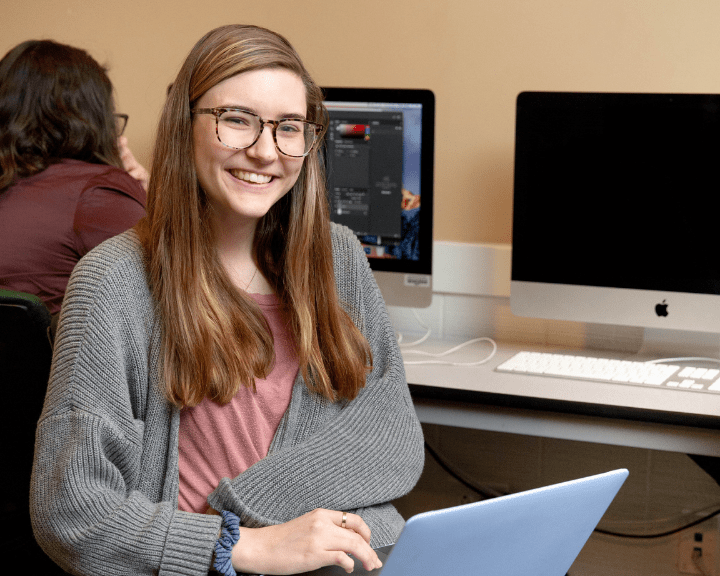Digital Media: Film Concentration
A Christ-centered, creatively influential approach to film.
The world of entertainment—reimagined—through a Christ-centered perspective.
Few industries are as globally relevant as entertainment. Through television and film, there’s no limit to the beauty and wonder you can create or critique. From development, production, and distribution, to screenwriting, editing, and media analysis, prepare for a career unlike any other.
Work as a film editor, talent agent, cinematographer, digital effects specialist, television program director, executive producer, and more. Expand the limits of creativity through major productions or independent films. Explore every opportunity, engage every facet, and elevate your passion through a Bachelor of Arts degree in digital media with a concentration in film.
What Can I Do with a Bachelor’s Degree in Digital Media with a Film Concentration?
Film is a powerful medium that combines storytelling, visual artistry, and technical expertise to captivate audiences and convey compelling narratives. By immersing yourself in the world of film, you’ll have the ability to evoke emotions, provoke thought, and spark conversations.
Through the art of cinematography, editing, and directing, as a filmmaker, you’ll bring stories to life, transport viewers to different worlds, and explore the depths of human experience. Embrace the magic of film as you unleash your creativity, share unique perspectives, and leave an indelible mark on the cinematic landscape, inspiring and entertaining audiences around the globe.
Audio Engineer
Cinematographer
Film Critic
Film Director
Film Editor
Screenwriter
Experience Learning In Studio and Across Campus

The Vision (Online & Magazine)
One incredible experience. Two award-winning publications. Countless ways to improve your talents. Writing. Photojournalism. Videography. Editing. Production. And more. Practice all of it while working for NGU’s magazine (The Vision) and news site (The Vision Online).
Vision-48 News
Television writing and producing. Studio operations and field production. Experience every aspect as a VisionTV staff member. Recognized by the SC Press Association as a leader in online student media, NGU’s VisionTV and VisionMedia are led by students like you.


NGU Film Club
Join the student-led NGU Film Club and inspire Christian storytelling through video production. Collaborate with your peers to produce films. Write, direct, produce, and promote various projects. Then, showcase your work at NGU’s annual Red Carpet Film Festival. Even have your production judged by film professionals. It’s Christian media at its finest – all at NGU.









